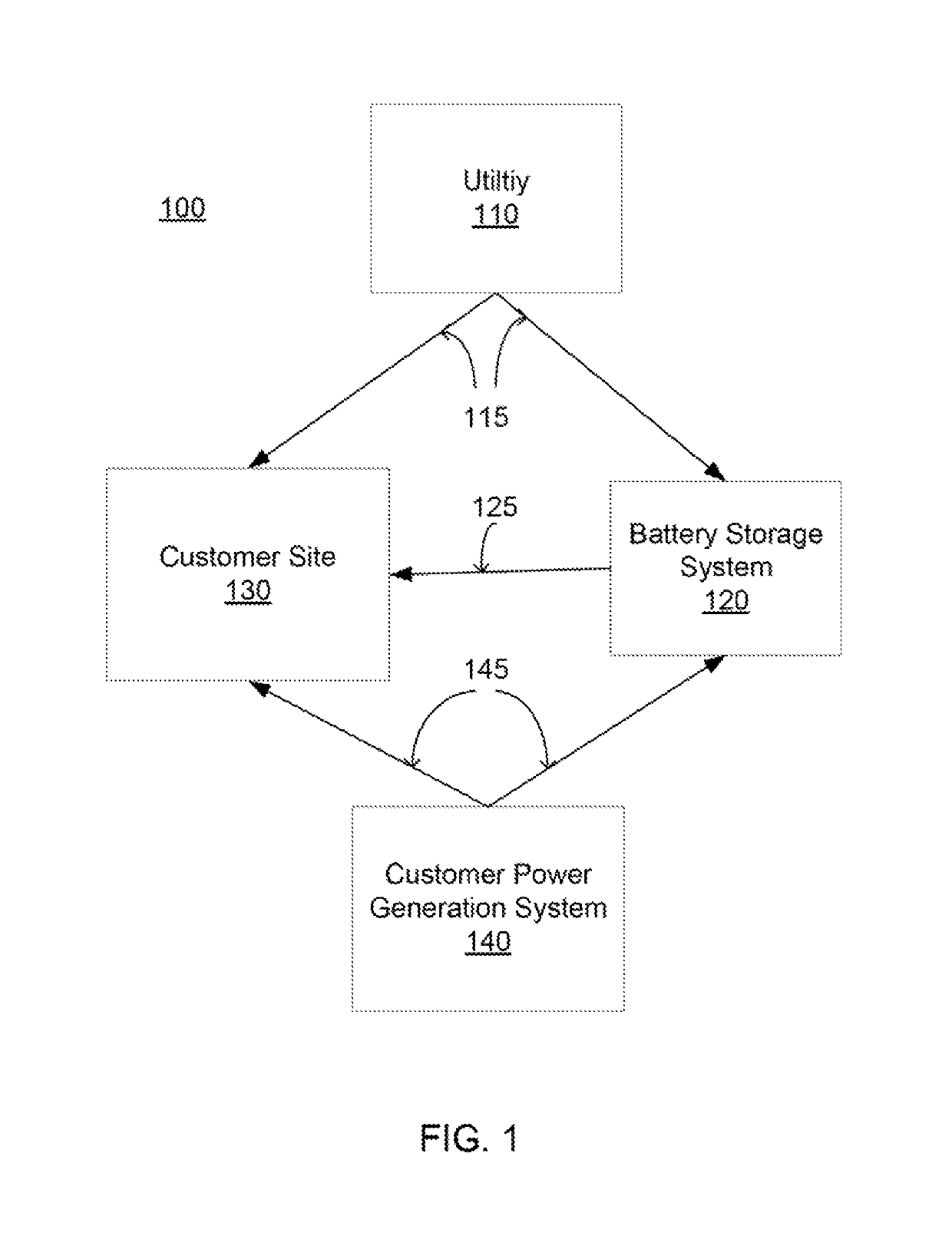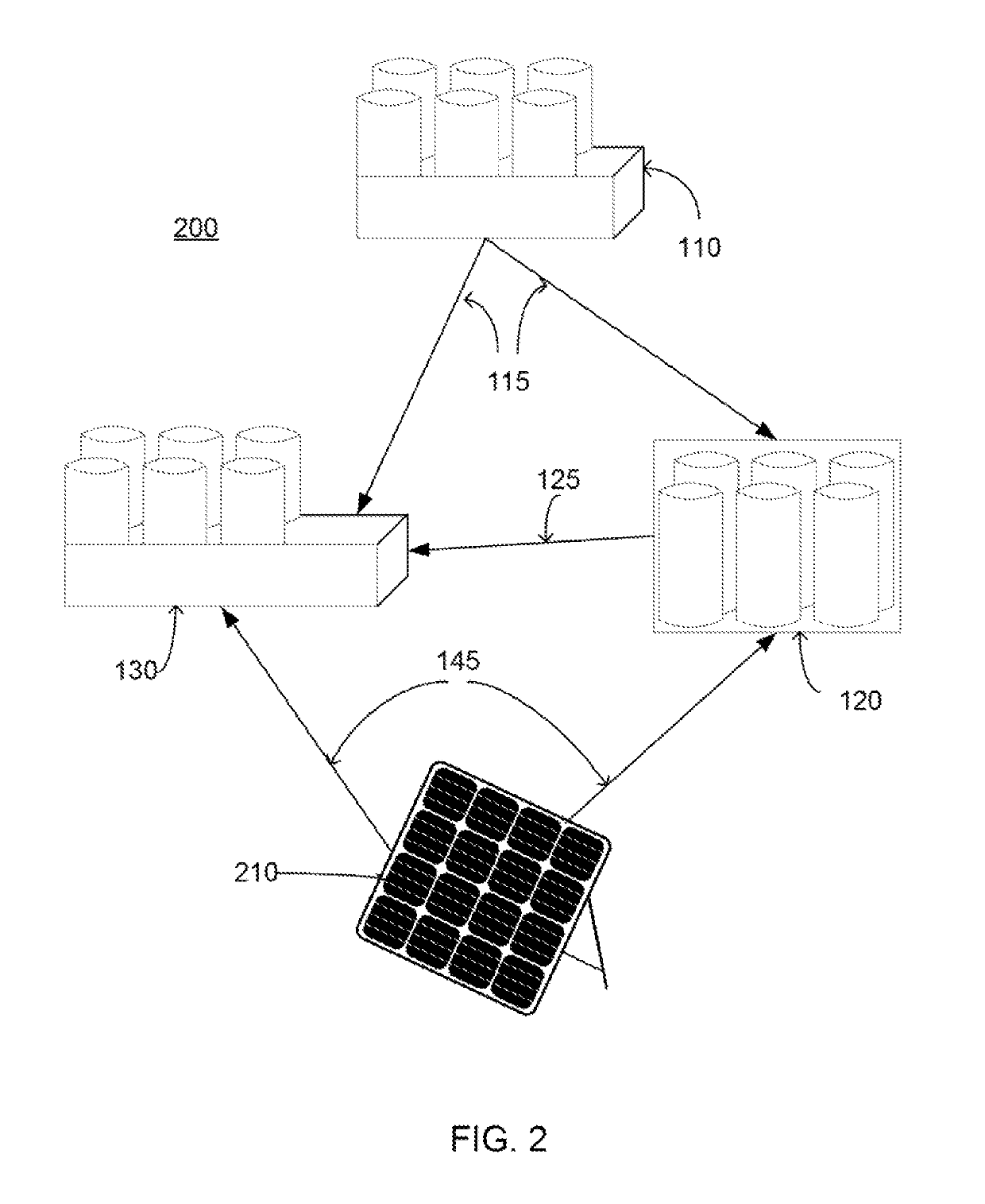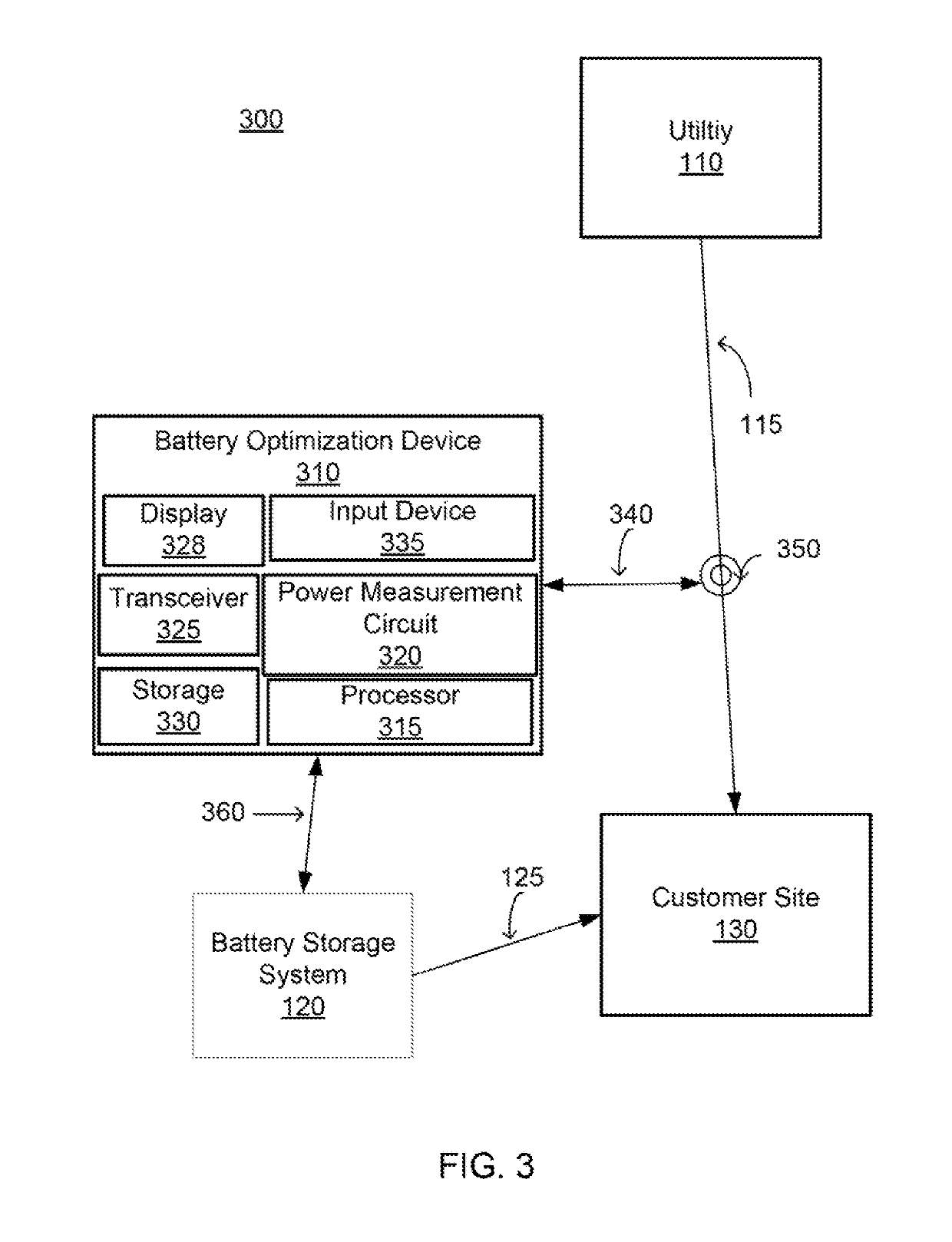Optimal battery sizing for behind-the-meter applications considering participation in demand response programs and demand charge reduction
a technology of demand response program and optimal battery size, applied in the field of optimal battery storage system, to achieve the effect of minimizing the daily operational power cos
- Summary
- Abstract
- Description
- Claims
- Application Information
AI Technical Summary
Benefits of technology
Problems solved by technology
Method used
Image
Examples
Embodiment Construction
[0017]Battery size of a battery storage system (BSS) may be optimized to minimize daily operation cost. To do so, a cost function may be used that considers the operational cost of a microgrid (i.e., purchasing electricity from the grid and Demand Charges), cost of a battery (capital cost of the battery broken down to daily cost), and benefits for participating in demand response programs. Daily battery cycle is limited to a certain limit which calculated by considering a desired battery lifetime (in years).
[0018]Different inequality constraints are considered for safe operation of the microgrid, such as generation and demand balance, maximum and minimum battery state-of charge, maximum photovoltaic power generation availability.
[0019]Since benefiting from demand response programs is directly related to the customers' consumption over non-event-days, both event-days and non-event-days are optimized at the same time for a year.
[0020]A grid-connected micro-grid may be populated by a l...
PUM
 Login to View More
Login to View More Abstract
Description
Claims
Application Information
 Login to View More
Login to View More - R&D
- Intellectual Property
- Life Sciences
- Materials
- Tech Scout
- Unparalleled Data Quality
- Higher Quality Content
- 60% Fewer Hallucinations
Browse by: Latest US Patents, China's latest patents, Technical Efficacy Thesaurus, Application Domain, Technology Topic, Popular Technical Reports.
© 2025 PatSnap. All rights reserved.Legal|Privacy policy|Modern Slavery Act Transparency Statement|Sitemap|About US| Contact US: help@patsnap.com



